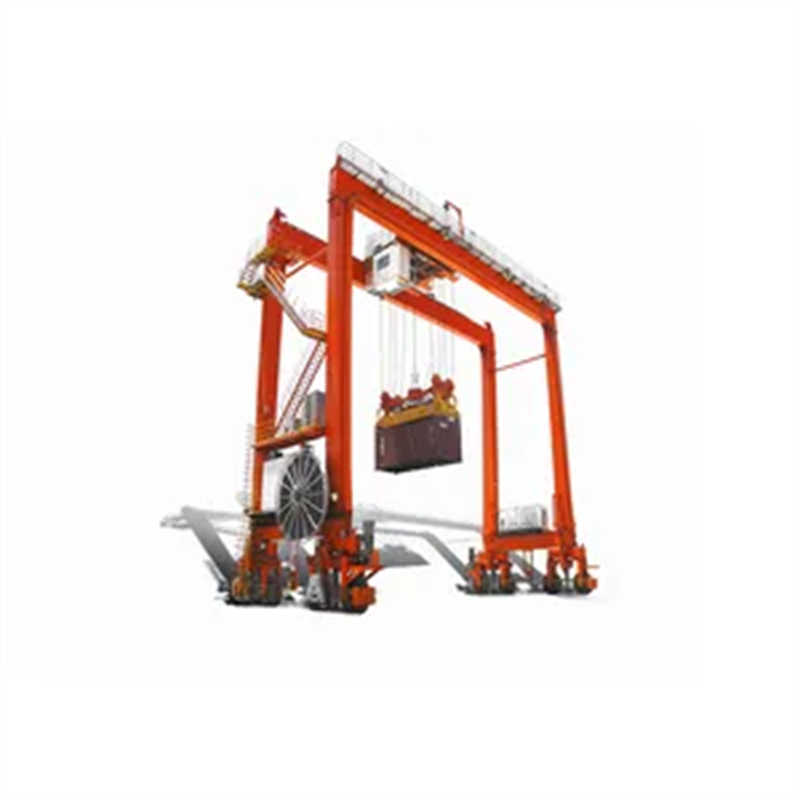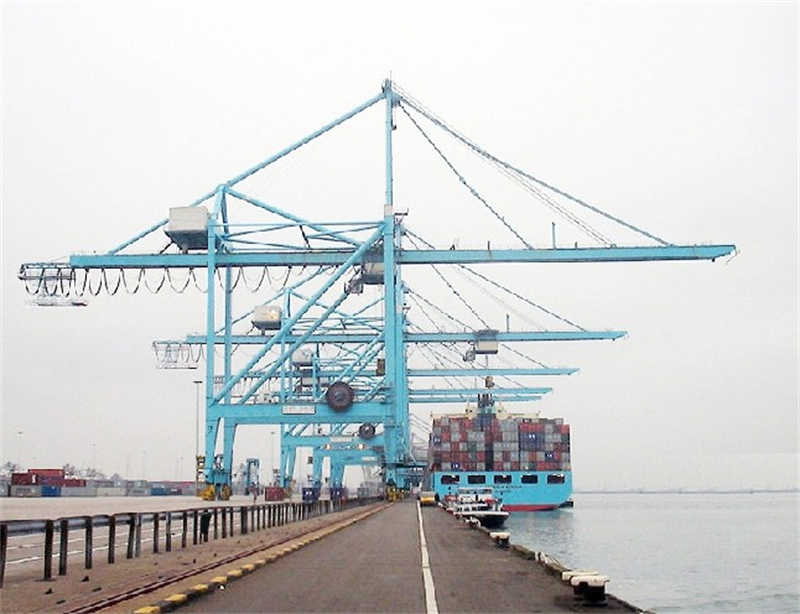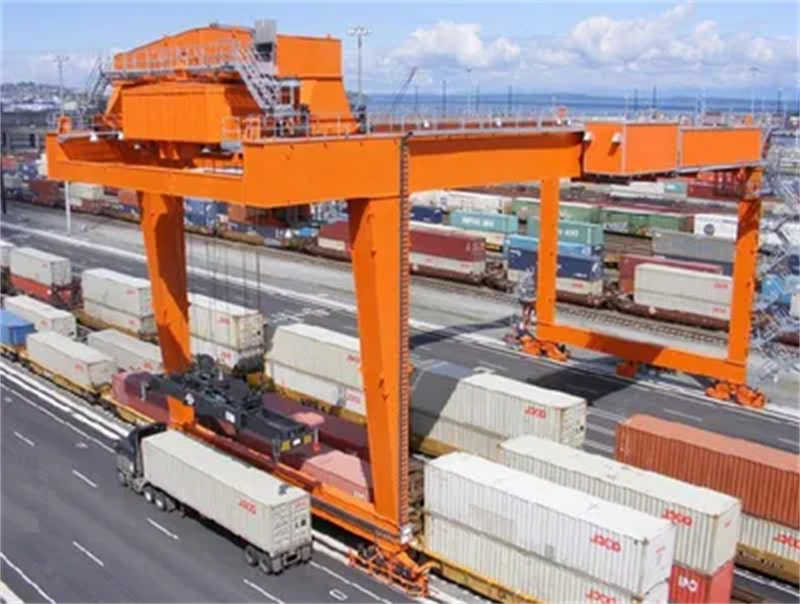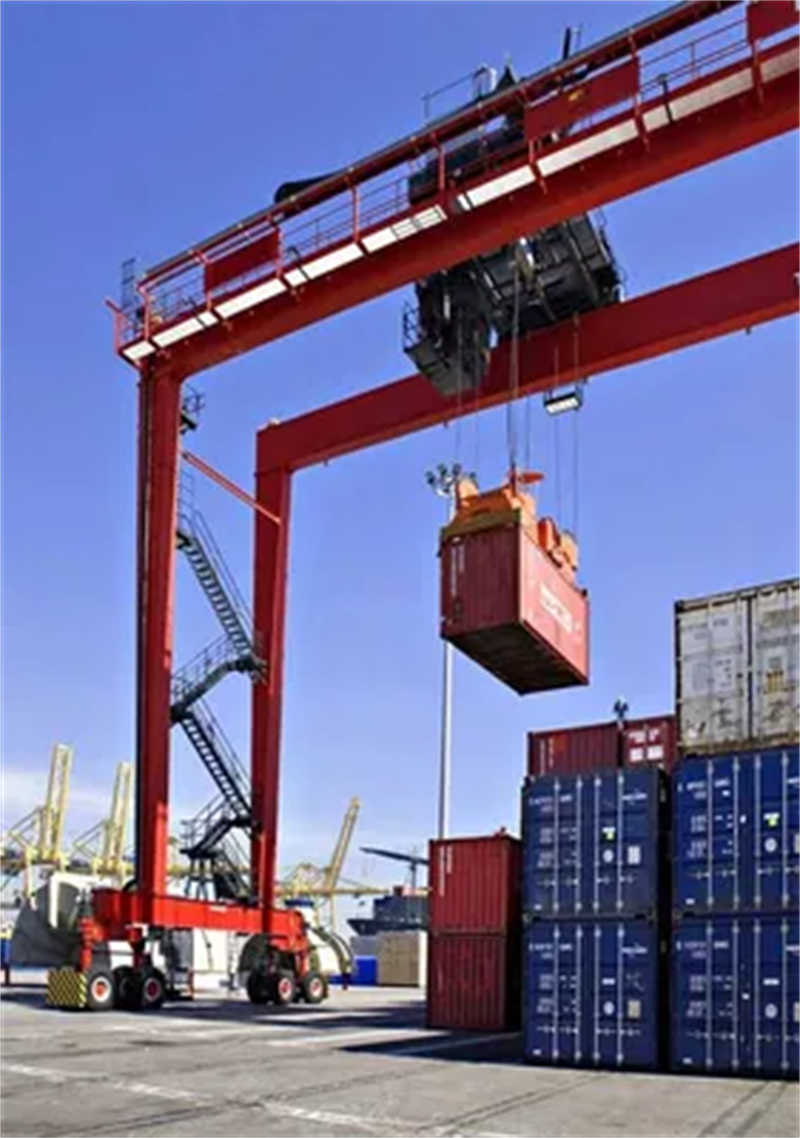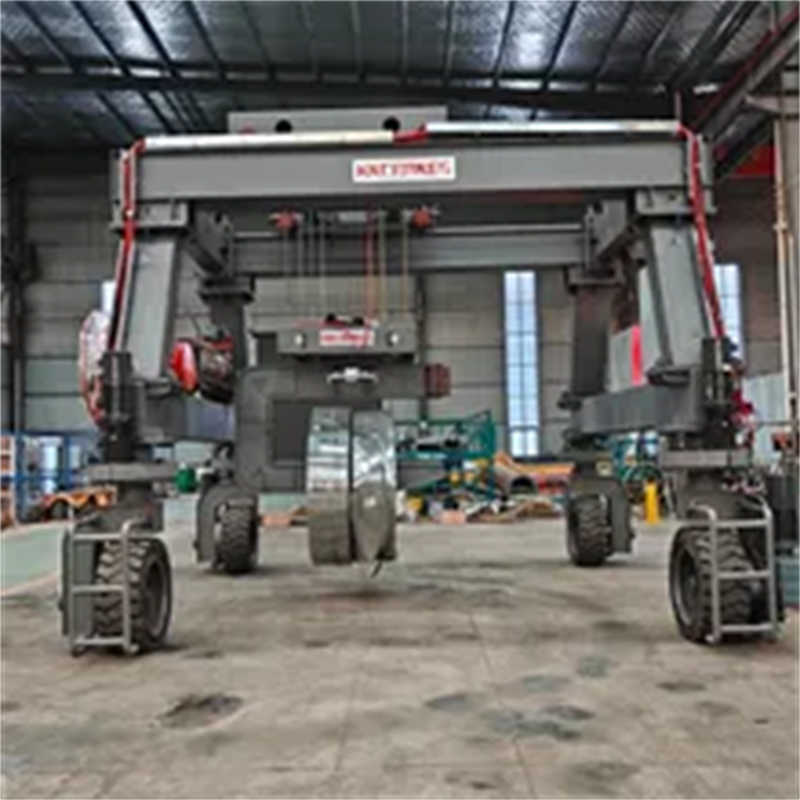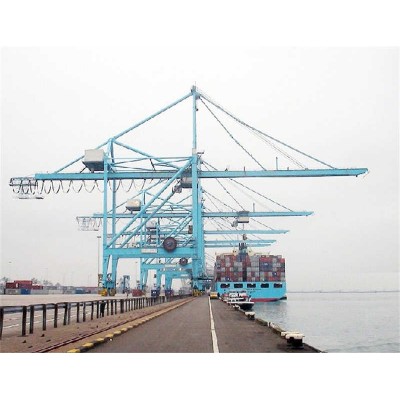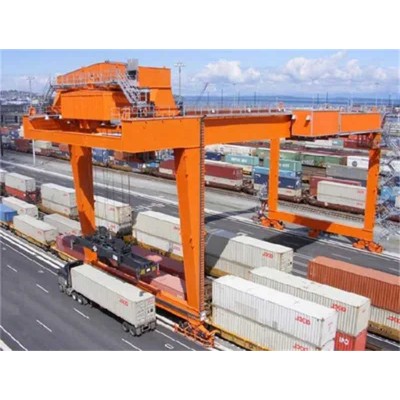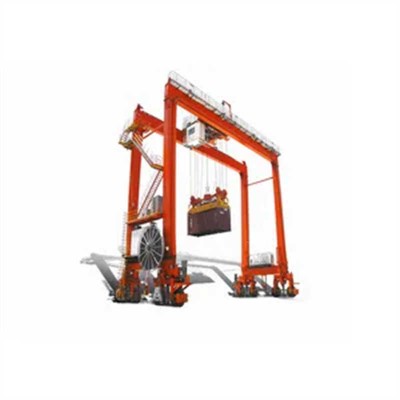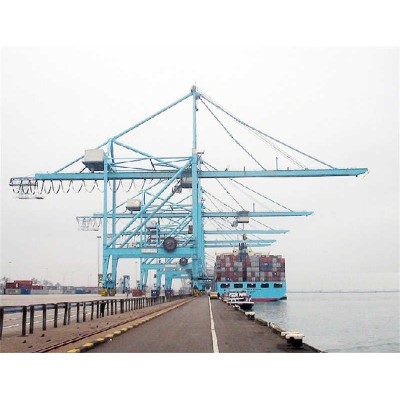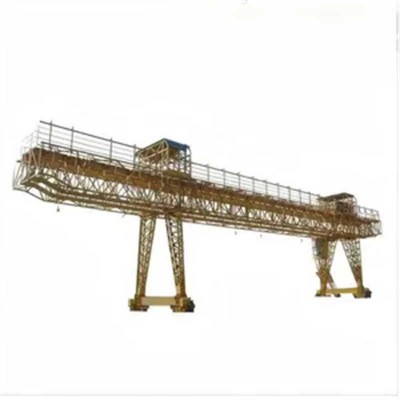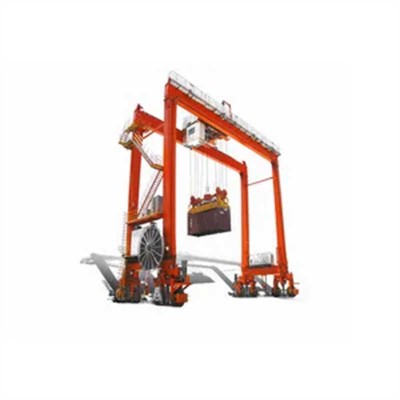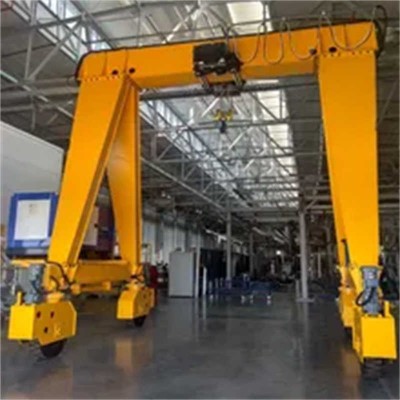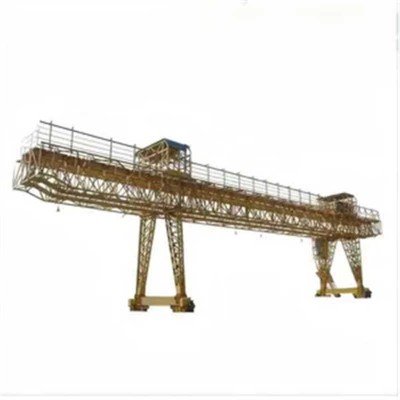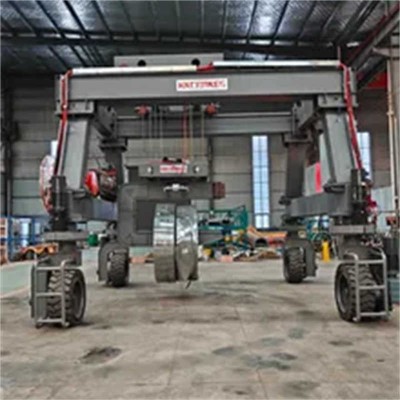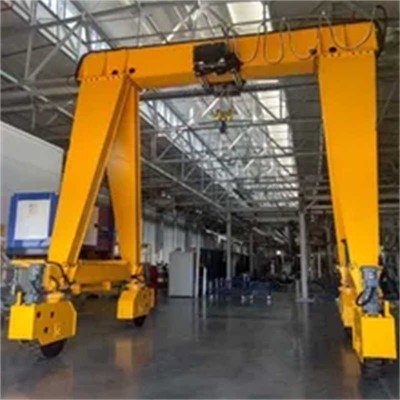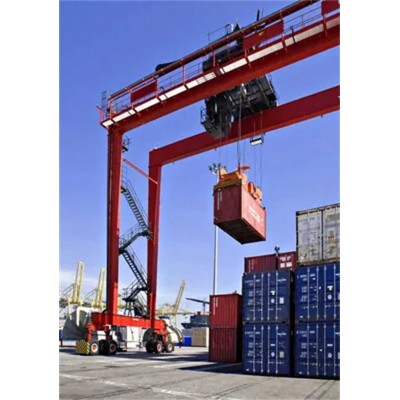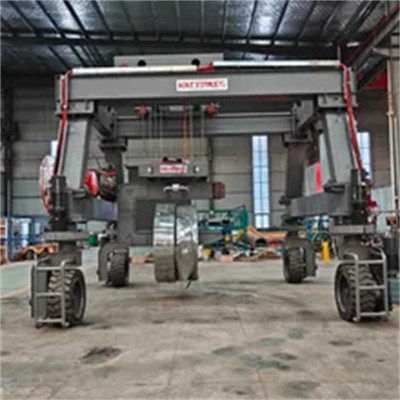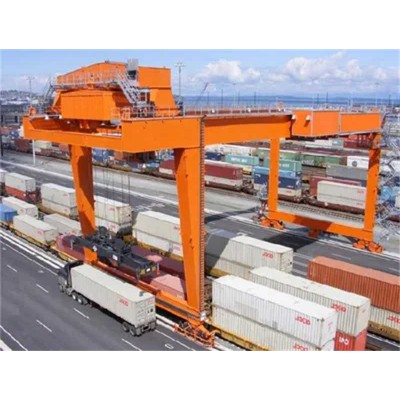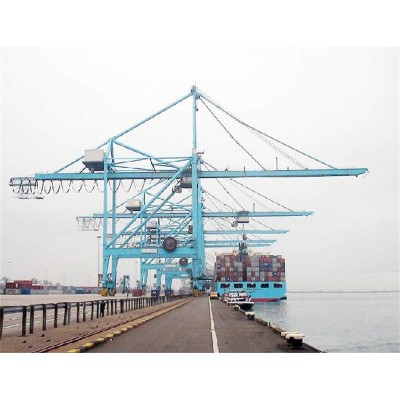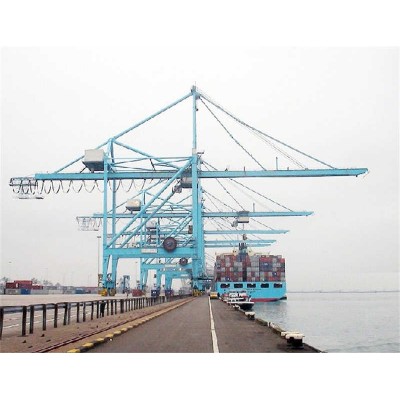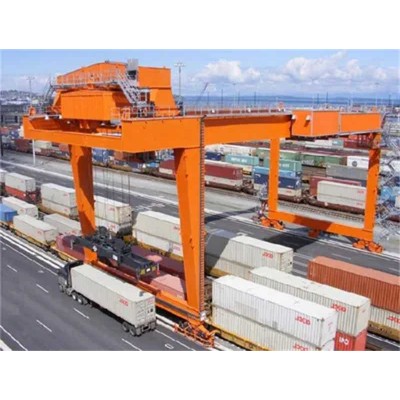8+1 Wide Span RTG Crane – High-Stability Yard Operations
$500000.00Rubber
Tyred container Gantry crane (RTG) is a mobile gantry yard crane used for
stacking intermodal containers within the stacking areas of a container
terminal. RTG cranes are used at container terminals and container storage yards
to straddling multiple lanes of rail/road and container storage, or when maximum
storage density in the container stack is desired.
Rubber
Tired Gantry container crane(RTG) is generally made up of the following unit:
frame, hoisting system, minimum turing mechanism, bridge traveling and turning
mechanism, trolley traveling mechanism, container spreader, diessel generator
set and eletrical equipment, other aiding equipment for safety. Crane is
accessible to PLC and CMMS and has sufficient power supply for lighting and
communication.
Standards
followed during design and manufacturing processes:
Rubber
tired transtainer specification,
Test
method for rubber tired gantry container crane,
Safety
rules for lifting appliances,
Design
rules for cranes,
Gantry
crane technical requirements.
ISO
standards and FEM.
By
comparison with Rail Mounted Gantry container crane(RMG), RTG is better in
flexibility and economy and being more adjustable to container yard. However, it
shares the feature of rigid requirements of maintenance and higher expense in
utility.
Rail-mounted
container gantry cranes (RMG) are specialized yard container handling
cranes.
RMG
crane travels on rails to lift and stack 20' or 40' containers in the yard area
by means of the yard power. The container is lifted by a telescopic spreader
attached to cables. Rail mounted container gantry cranes come in a variety of
models with different spans and overhangs.
RMG
crane consists of lifting device, trolley traversing device, gantry travelling
device and sway-dampening device. The lifting, gantry and trolley devices are
normally equipped with AC frequency conversion control system. The lifting
device is of single drum type, and it can also be designed to be double drum
type if needed.
RMG
cranes are specifically designed for intensive container stacking due to its
automation and less need for human handling. Compared to the Rubber Tyred
container Gantry crane (RTG), the RMG crane has the advantages of being driven
by electrical power, cleaner, bigger lifting capacity, and higher gantry
traveling speed with cargo. Rail-Mounted Gantry cranes are particularly
effective for rail/road transhipments of large quantities of
containers.
The
following items are for user's selection according to their own needs:
*
Trolley slewing mechanism. Normally the trolley can be slewed easily between -10
~ + 190 degrees. If needed, continuous slewing can be realized.
*
RMG crane with overhanging beam, which reaches beyond gantry travellling
rail.
*
RMG crane with different rail span and gauge.
*
Two-Direction anti-sway system.
Quayside
container gantry crane (also called container handling gantry quay crane,
ship-to-shore crane ) is a large dockside gantry crane at container terminals
for loading and unloading intermodal containers from container ships and
carriers.
Quayside
container gantry cranes consistent frame, hoisting system, luffing mechanism,
inclining and rotating mechanism, travelling mechanism, trolley travelling
mechanism and machinery house, elevator, container spreader, electrical
equipment and other aiding equipment for safety. The spreader can be lowered
down on top of a container and locks on to the container's four locking points,
using a "twistlock" mechanism. Normally single containter can be unloaded at
once, however up to four 20' containers can be handled at the same time by moden
technology.
Quayside
container gantry crane is driven by an operator that sits in a cabin suspend
from the trolley. The trolley runs along rails that are located on top or sides
of the boom and girder. The operator runs the trolley over the ship to lift the
container cargo. once the spreader latches (locks) on to the container, the
container is lifted and moved over the dock and discharged on a truck chassis or
trailer to then be taken to the storage yard. Containers can also be lifted from
the chassis to store (load) them on to the ship.
Stands
followed during design and manufacturing processes:
Specification
of Quayside container crane,
Test
method for Quayside container crane,
Safety
rules for lifting appliances,
Design
rules for cranes,
ISO
standards and FEM.
Grab
type Ship Unloader has the utility of unloading enormous bulk cargos in docks
and has the main features of big unloading capacity and of being able to unload
various cargos, which has good adjustability to different size of
ships.
Grab
ship unloader comprises of steel structures, hoisting and closing mechanism,
trolley travelling mechanism, luffing mechanism, travelling mechanism, machinery
house, lift, grab, dust preventing system, electrical equipment, and necessary
safety and aid devices. Reducer and four linked drums can be applied to the
trolley travelling mechanism as well as hoisitng and closing mechanism which are
also accessible to PLC frequency changeable, digital speed altering system and
CMMS. Therefore the two above systems have the function of analysis, monitor and
efficient power supply of communication and illumination. Also, the grab can be
equipped with electronic anti-swaying system
Steel
structure has a diversity of different types such as single and double box
girder, truss boom, arm boom and H gantry frame.
Standards
during design and manufacturing processes:
Specification
of Quayside crane,
Safety
rules for lifting appliances,
Design
rules for cranes,
ISO
Standards and FEM.
Contact Supplier
LINKS : Dongqi Crane



